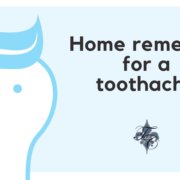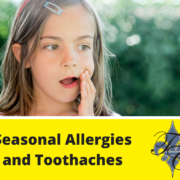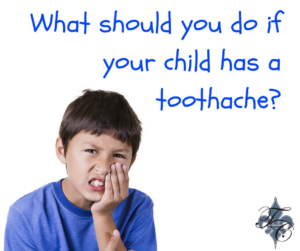Home remedies for a toothache
A toothache can range from throbbing to excruciating, and with a good dentist it is likely that the pain will not last long. However, there are those times in the middle of the night when you need to take matters into your own hands.
Toothache is at the top of the list for not-a-fun-time, but there are some natural remedies you can use to relieve the pain before you make it to the dentist. From Dr. Chauvin and our office here in Lafayette, Louisiana, here are some home remedies to try.
Home Remedies for a Toothache
It’s always recommended to visit your dentist when facing serious, long-lasting tooth pain. But for quick home remedies to ease the pain in the meantime, here’s what you should consider:
• Clove Oil – Apply directly on your bad tooth. Clove oil has remarkable bacteria-slaying properties—and it also has a numbing effect, which is why it’s a longtime folk remedy for toothache. Today we know that this extract from the clove bud contains eugenol, which acts as a local anesthetic. The oil may sting at first, but then blissful relief sets in.
• Tincture of myrrh – The astringent effects help with inflammation, and myrrh offers the added benefit of killing bacteria. Simmer 1 teaspoon of powdered myrrh in 2 cups of water for 30 minutes. Strain and let cool. Rinse with 1 teaspoon of the solution in half-cup water five to six times a day.
• Peppermint tea – Has numbing power and a great taste. Put 1 teaspoon of dried peppermint leaves in 1 cup of boiling water and steep for 20 minutes. After the tea cools, swish it around in your mouth, then spit it out or swallow. Repeat as often as needed.
• 3% hydrogen peroxide solution – Swish mouthful to assist in killing bacteria and relieve some discomfort. This can provide temporary relief if the toothache is accompanied by fever and a foul taste in the mouth which are both signs of infection. A hydrogen peroxide solution is only for rinsing. Spit it out, then rinse it several times with plain water.
• Salt and Pepper -Salt mixed with pepper can be of great use when a tooth becomes extremely sensitive as both ingredients have antibacterial, anti-inflammatory, and analgesic properties.
- Mix equal amounts of pepper and common salt with a few drops of water to form a paste.
- Apply the paste directly on the affected tooth and allow it to sit for a few minutes.
- Do this daily for several days.
• Ice – Place a small cube in a plastic bag, wrap a thin cloth around the bag, and apply it to the aching tooth for about 15 minutes to numb the nerves. Alternatively, that ice pack can go on your cheek, over the painful tooth.
• Tea Bag – A warm, wet tea bag is a standard folk remedy for toothache that’s worth a try. Black tea contains astringent tannins, which may reduce swelling and give you temporary relief.
• Use a toothpaste that’s designated “for sensitive teeth.” If you have a problem with shrinking gums, this could relieve a lot of the pain you probably experience from hot or cold foods. When gums shrink, the dentin beneath your teeth’s enamel surface is exposed, and this material is particularly sensitive.
• Garlic – The use of garlic can also provide immense relief from toothache. Garlic has antibiotic and other medicinal properties that can be very effective in reducing pain.
- Mix a crushed garlic clove (or garlic powder) with some table salt or black salt and apply it directly on the affected tooth to alleviate the pain. If you prefer, you can chew one or two cloves of garlic to get relief.
- Repeat this natural treatment for a few days.
Contact Dr. Chauvin in Lafayette, Louisiana for all your dental health questions
Whatever else you do, make an appointment to see your dentist. These home remedies can provide temporary relief, but your dentist needs to do some exploration and find out what’s causing this toothache. Odds are, you have a problem that requires treatment. If you don’t find out what’s causing the ache, it will only get worse.





